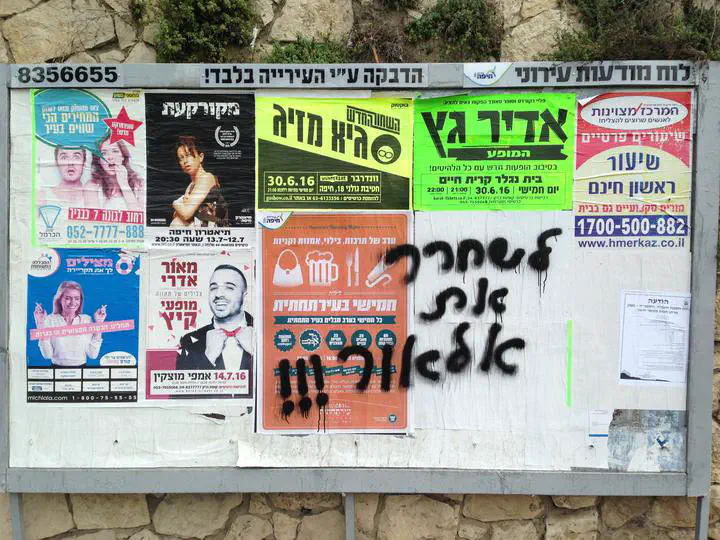Ingroup Policing in Israel
 From my fieldwork in Haifa, Israel - graffiti says “free Elor!!!”
From my fieldwork in Haifa, Israel - graffiti says “free Elor!!!”This project emerges from my dissertation work, which itself is based on three research trips to Israel in 2015, 2016, and 2018. While most who study Israel and Palestine focus on between-group attitudes, I was interested in within-group attitudes, focusing on Israel Jews in particular. I was also interested in understanding how we can get people to be more supportive of ingroup policing—i.e., policing the misbehavior of one’s group members in a situation of ethnic or religious tension. Political scientists generally view ingroup policing as an important equilibrium that helps prevent outbreaks of violence, but no one had studied the individual-level factors that might cause citizens to be more or less supportive of ingroup policing. I was particularly interesting in framing: Does the way in which you frame or justify condemnations of misbehavior matter to other group members?
In two experiments for my dissertation, Israeli Jews participated in hour-long group discussions about a well-known incident of ingroup misbehavior, the Elor Azaria incident. An actor in these groups varied their argument for condemning the soldier’s actions, in some using a “moral” frame and in others using a “pragmatic” frame (both in comparison to a “neutral” frame control condition). Both treatments changed participant attitudes, but participants responded negatively to the actor in the moral condition, indicating a personal cost for using moral frames when criticizing one’s own group. A writeup of these results is available, upon request.
In a follow-up conjoint experiment planned for 2024, I am expanding on the original study to examine the how Israeli Jewish citizens respond to elite-level condemnation of ingroup misbehavior.